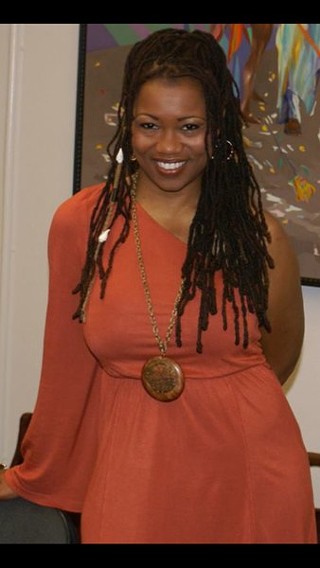Shelved Not by Color, but by the Character of Their Content
Director C. Mikki on 'Black and White'
By Amy Gentry, 11:30AM, Wed. Jul. 24, 2013
When author and director C. Mikki set out to write her first novel, she says, “I had the same thought most new writers have: You write it, and it will come."
She soon found out it wasn’t that easy. After struggling to market herself to mainstream publishers, Mikki eventually wound up self-publishing Men and Sex: Power, Pleasure, Pain, and came out of the experience wondering if there were special barriers that made it more difficult for African-American authors to publish. She decided to take her camera along to the last meeting of the Black Publishers & Writers Conference in 2012, where she asked attendees about their experience in the world of publishing.
The resulting documentary film, Black and Write, will screen in Austin Thursday night at the Millennium Youth Entertainment Complex. Just under an hour long, the film gracefully compiles a series of interview clips with minimal narrative intrusion, allowing black authors, publishers, and agents to speak for themselves on topics of concern such as the predominant “black” genres, self-publishing trends, and turning books into movies.
Mikki learned a lot from making the documentary, she says. First off, “a self-published author is a self-published author, regardless of race” – in other words, self-promotion and sales are difficult for anyone who forgoes the traditional publishing route. However, she did find that black authors faced a different set of barriers when trying to break in to the traditional publishing world in the first place.
The primary barrier was the difficulty of marketing fiction that fell outside the categories of erotica, Christian fiction, or urban fiction, in which stories taking place in urban settings are often characterized by explicit sex, violence, and profanity. Even black authors who have had success find it difficult to sell books outside these genres, she says. While non-black authors might have marketing problems, they were not as constricted by genre. One author in the film acknowledges that there’s nothing wrong with such popular genres, but laments, "If you have Crackhead 1, do you really need Crackhead 2?"
The anxiety about black genres carries over into a discussion of "Black Interest" or "Urban Fiction" sections in bookstores. In one of the most interesting segments of the film, Mikki cuts between authors who feel marginalized by such distinctions and publishers who claim that the specialized sections benefit black authors by helping them sell books.
"They’re not trying to exclude us or harm us by having a separate sections,” says author Reshonda Tate Billingsley, whose novel Let the Church Say Amen was optioned for a BET original film by Queen Latifah.
But as one editor describes a "typical African-American woman" as one who doesn't have time to search for her favorite author in the general section because she's juggling long hours of a job with multiple kids, it's easy to see how pigeonholed black audiences have become in the publishing industry. When Zane, a highly successful author of erotica, testifies that her books sell far more copies when they're in the African-American section, it's hard not to wonder if that is also the case for authors writing outside the "big three" genres of Christian, urban, and erotica.
For Mikki, the film serves a dual purpose: educating new writers on the challenges ahead and raising awareness of the constraints on black authorship in the hopes of someday eradicating them. "If this film makes one person say, 'I'm going to require more out of literature, I'm not going to buy what's on the shelf just because that's what we're being fed,' maybe the publishing industry will sit up and take notice."
Black and Write is screening on Thursday, July 25, at 7pm at the Millennium Youth Entertainment Complex. Tickets are $10 and are available here.
A note to readers: Bold and uncensored, The Austin Chronicle has been Austin’s independent news source for over 40 years, expressing the community’s political and environmental concerns and supporting its active cultural scene. Now more than ever, we need your support to continue supplying Austin with independent, free press. If real news is important to you, please consider making a donation of $5, $10 or whatever you can afford, to help keep our journalism on stands.
Millennium Youth Entertainment Complex, C. Mikki, Black and White, publishing, fiction, black authors, book stores, urban fiction, erotica









